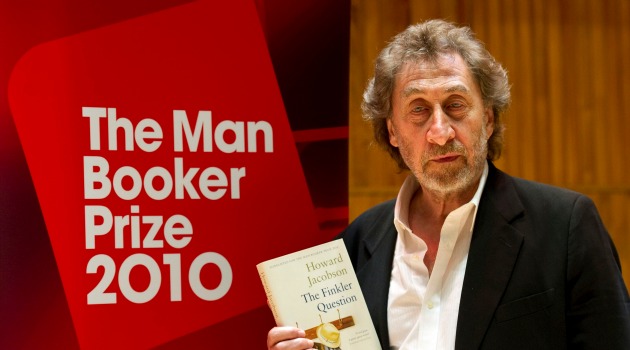Author Asks “Will We Ever Be Forgiven for the Holocaust?”

Howard Jacobson, Man Booker Prize winner and author of such novels as “The Finkler Question,” delivered this year’s Jerusalem Address at the B’Nai Brith World Center in Jerusalem:
The question “When will Jews be forgiven the Holocaust,” and its implied answer, “never,” have political implications right enough, but there’s an important nonpolitical lesson to be drawn from them. If it’s not for anything they have done, but for what’s been done to them, that Jews cannot be forgiven, then it’s in vain for Jews to strive to alter the way the world sees them. In vain that they try to improve their public relations image, adopt a sweeter demeanor, or hang their heads in embarrassment.
It is vain to suppose we can thereby undo the twisted logic of being unforgiven for the Holocaust, unforgiven for who we are perceived to be, unforgiven for what has been visited on us — a perpetuity of being unforgiven, which, whatever its political effect, has a psychological cause, and so would not vanish tomorrow if Israel gave to its neighbors every blade of contested grass, and every wealthy Jew turned himself overnight into a pauper. For don’t forget that being a light unto nations itself incurs the charge of spiritual arrogance.
He took on the subject of anti-Zionism, what many see as the “new” anti-Semitism:
The syllogism goes like this:
Not all critics of Israel are anti-Semites.
I am a critic of Israel.
Therefore I am not an anti-Semite.
In this way has anti-Zionism become an inviolable space. Question it and you are deemed to have cried anti-Semitism (this, whether you have or you haven’t), and since to cry anti-Semitism is a foul, no position from which it is rational to question anti-Zionism remains allowable. By the infernal logic of this magic circle, the anti-Zionist is doubly indemnified, firstly against any criticism of his position whatsoever, since the status of such criticism has been reduced to that of “tactic,” and secondly against the original accusation of anti-Semitism, which anti-Zionism cancels out.
I don’t myself argue that anti-Zionism is a method for circumventing Jew-hating while indulging it, but were that to have been the intention, it could not have been better planned.
Criticism of Israel functions as a sort of antiseptic bath, or mikveh — no matter how mired in the impurities of anti-Semitism you might be when you go in, you come out as fragrant as a bride awaiting her groom.
More from SNAPSHOTS
Mahmoud Abbas’ Diatribe Threatening Israel Included Bogus Canaanite Claim
September 10, 2019
Palestinian Authority President Mahmoud Abbas’ recent anti-Israel diatribe that aired on PA TV was monitored and translated by Palestinian Media Watch (PMW). Excerpt: "I say to [Israel]: Every stone you have built on our land [...]
CNN Calls House’s Unifying Anti-BDS Vote ‘Divisive’
July 24, 2019
Yesterday, in an overwhelming vote of bipartisan support, the House of Representatives voted 398 to 17 to adopt a resolution opposing the anti-Israel BDS (boycott, divest, sanctions) campaign. Yet, CNN's headline casts the unifying vote [...]
NY Times Cites Poll, Hides Palestinian Support for Violence
July 9, 2019
The New York Times has struggled to accurately describe polls this year. In January, editor Jonathan Weisman misrepresented Pew polling data to describe a nonexistent surge in Israeli support for the United States under President [...]
CNN’s Zakaria Indulges Palestinian Propagandist Hanan Ashrawi
June 9, 2019
Fareed Zakaria’s weekly Cable News Network (CNN) program (grandiosely named “Global Public Square”) June 9 broadcast included a discussion of the current U.S. Middle East peace plan with guests Hanan Ashrawi (Palestinian Authority official) and [...]
In Robert Bernstein Obit, AFP Inappropriately References His Judaism
May 29, 2019
Robert Bernstein (Courtesy the New Press) In its obituary yesterday for American publisher Robert Bernstein, Agence France Presse inserted an inappropriate reference to the Human Rights Watch founder who later turned on the organization due [...]


